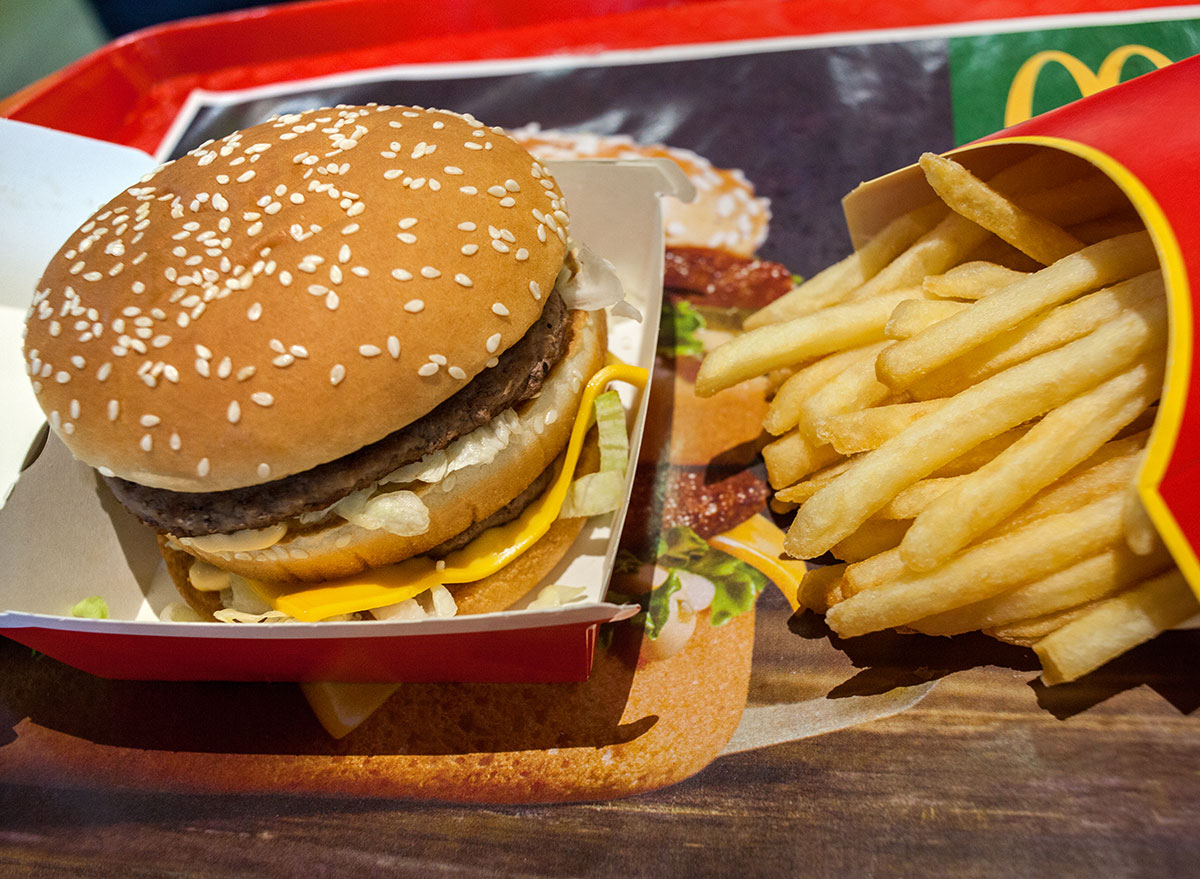
"McDonald's can weather the storm if it keep executing its plan to win," he said. Still, Bradshaw who owns 200,000 shares of McDonald's in his fund, hasn't lost his appetite for the fast-food chain. both owned by CKE Restaurants ( CKE) - as two other examples of a fast-food pullback. "Even though fast food is becoming a consumer staple, it's not entirely immune from a recession," Owens said, citing slowing sales at Hardee's and Carl's Jr. Morningstar analyst John Owens said the trading down on McDonald's menu probably also hurt same-store sales growth last month. While some consumers will trade down to its menu instead of eating at a casual dining chain, Bradshaw said even McDonald's customers will now look to downgrade their options from a premium meal to a value-priced meal. "But McDonald's itself will tell you that it is not recession-proof, but recession-resistant," Bradshaw said. Gary Bradshaw, portfolio manager with Hodges Capital Management, agreed with Flickinger's assessment that softness in McDonald's comparable sales indicated Americans were "feeling the headwinds from housing problems and gas and energy costs." However, other executives dismissed any speculation that McDonald's was gearing up for an all-out burger price war.

The company's value meal items currently account for up to 14% of total revenue. Skinner also said McDonald's would be making a "slight shift" to more value-priced offerings in 2008. back then accounted for 58% of our revenue. "In 1991, we were a completely different company," Skinner said.

"McDonald's will still get customers but they'll be buying more of the dollar- menu items instead of the number meals (sandwich, fries and drink), and many will bring their own bottles of water," Flickinger said.ĭuring a conference call with analysts to discuss its fourth-quarter results, CEO Jim Skinner addressed McDonald's past performance during a recession.

sales slowdown should be a bleaker sign that American consumers may be in even worse shape. "There really is no safe harbor in retail right now," Flickinger warned, adding that McDonald's U.S. Consumers also switched from meats such as beef, pork and poultry to eating more pasta. He said eating trends at the time indicated that consumers switched from McDonald's to buying ground beef and buns at the supermarket and cooking at home. "In the late 1980's and 90's when we had higher food and fuel price inflation, McDonald's was hit in a meaningful way." "All they would've had to do is go back and look at the historical trends," Flickinger said.


 0 kommentar(er)
0 kommentar(er)
